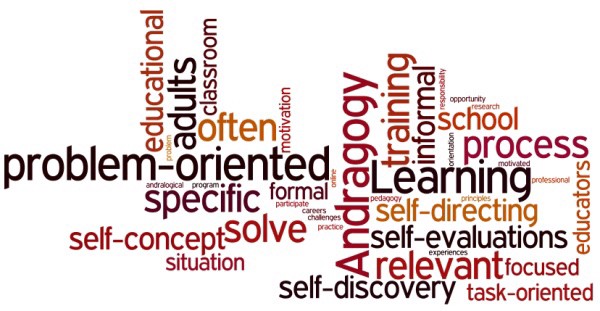The Adult Learning Theory – Andragogy – of Malcolm Knowles*

The Adult Learning Theory – Andragogy
Malcolm Shepherd Knowles (1913 – 1997) was an American educator well known for the use of the term Andragogy as synonymous to adult education. According to Malcolm Knowles, andragogyis the art and science of adult learning, thus andragogy refers to any form of adult learning. (Kearsley, 2010).
The term andragogy can be supposedly equivalent to the term pedagogy. Andragogy in Greek means man-leading in comparison to pedagogy, which in Greek means child-leading. However, it should be noted that the term pedagogy has been used since the Ancient Greek times, while Alexander Kapp, a German educator, first used the term andragogy in 1833.
Knowles’ 5 Assumptions Of Adult Learners
In 1980, Knowles made 4 assumptions about the characteristics of adult learners (andragogy) that are different from the assumptions about child learners (pedagogy). In 1984, Knowles added the 5th assumption.
- Self-Concept
As a person matures his/her self concept moves from one of being a dependent personality toward one of being a self-directed human being. - Adult Learner Experience
As a person matures he/she accumulates a growing reservoir of experience that becomes an increasing resource for learning. - Readiness to Learn
As a person matures his/her readiness to learn becomes oriented increasingly to the developmental tasks of his/her social roles. - Orientation to Learning
As a person matures his/her time perspective changes from one of postponed application of knowledge to immediacy of application. As a result his/her orientation toward learning shifts from one of subject- centeredness to one of problem centeredness. - Motivation to Learn
As a person matures the motivation to learn is internal (Knowles 1984:12).
Knowles’ 4 Principles Of Andragogy
In 1984, Knowles suggested 4 principles that are applied to adult learning:
- Adults need to be involved in the planning and evaluation of their instruction.
- Experience (including mistakes) provides the basis for the learning activities.
- Adults are most interested in learning subjects that have immediate relevance and impact to their job or personal life.
- Adult learning is problem-centered rather than content-oriented. (Kearsley, 2010)
Application of Andragogy in Personal Computer Training
Knowles (1984) provides an example of applying andragogy principles to the design of personal computer training:
- There is a need to explain the reasons specific things are being taught (e.g., certain commands, functions, operations, etc.)
- Instruction should be task-oriented instead of promoting memorization — learning activities should be in the context of common tasks to be performed by the others.
- Instruction should take into account the wide range of different backgrounds of learners; learning materials and activities should allow for different levels/types of previous experience with computers.
- Since adults are self-directed, instruction should allow learners to discover things and knowledge for themselves without depending on people. However, learners should be offered guidance and help when mistakes are made.
*this article was wrote by Christopher Pappas and published in https://elearningindustry.com/the-adult-learning-theory-andragogy-of-malcolm-knowles

